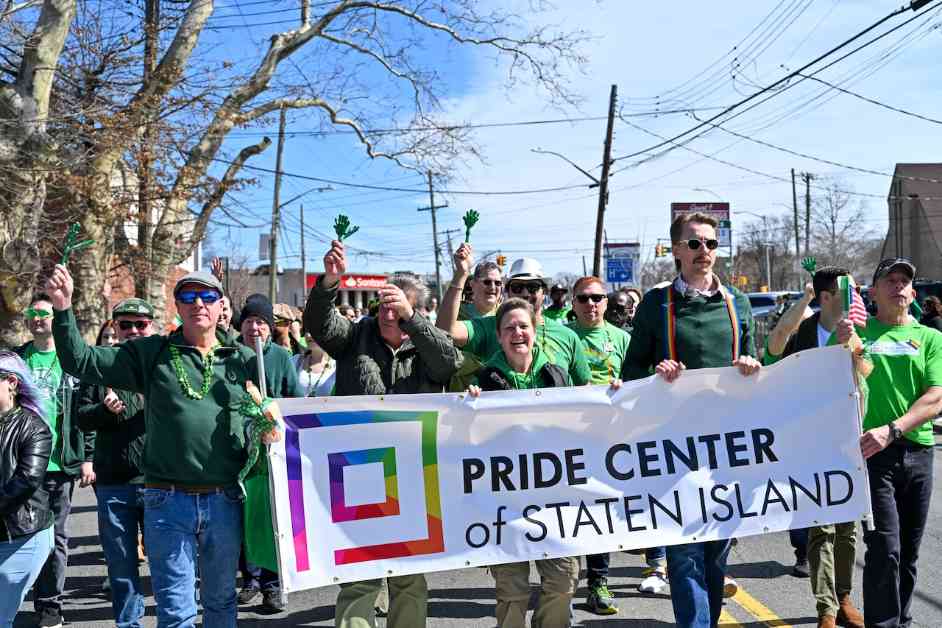Staten Island’s St. Patrick’s Day Parade, a long-standing tradition celebrating Irish heritage, is set to make history this year by including LGBTQ+ groups for the first time in its 60-year history. This significant change comes as a result of new leadership within the Richmond County St. Patrick’s Day Parade Committee.
In the past, LGBTQ+ groups were not allowed to march under their own banner in the parade, citing the event’s Catholic nature as a reason for exclusion. However, with the installation of new leadership in October 2024, the committee has extended an invitation to The Pride Center of Staten Island to participate in the 2025 parade.
The Pride Center, led by Executive Director Carol Bullock, has been advocating for inclusion in the parade for years. Bullock expressed her honor at being invited to march, highlighting the importance of celebrating Irish culture and being part of the vibrant community celebration.
The decision to include LGBTQ+ groups in the parade comes after years of advocacy and pushback against the exclusionary practices of the parade committee. In 2023, the annual Jerome X. O’Donovan Parade Breakfast was canceled due to the committee’s refusal to allow LGBTQ+ groups to march openly. This led to a peaceful protest by supporters displaying a large pride banner in front of Jody’s Club Forest.
In response to the exclusion, the Forest Avenue Business Improvement District organized an inclusive parade in 2024, which saw a diverse range of marchers boycotting the official parade in favor of inclusion. With the upcoming parade in 2025, the new leadership aims to make the event more inclusive and diverse.
The move to include LGBTQ+ groups in the parade has been met with praise and support from various groups and individuals, including the world’s largest LGBTQ+ advocacy group and NYC Mayor Adams. The decision reflects a growing trend towards inclusivity and diversity in community events and celebrations.
As Staten Island prepares for its inclusive St. Patrick’s Day Parade, the focus remains on celebrating Irish culture while embracing the diversity and unity of the community. The change marks a significant milestone in the history of the parade and sets a positive example for future events to prioritize inclusivity and acceptance for all participants.












